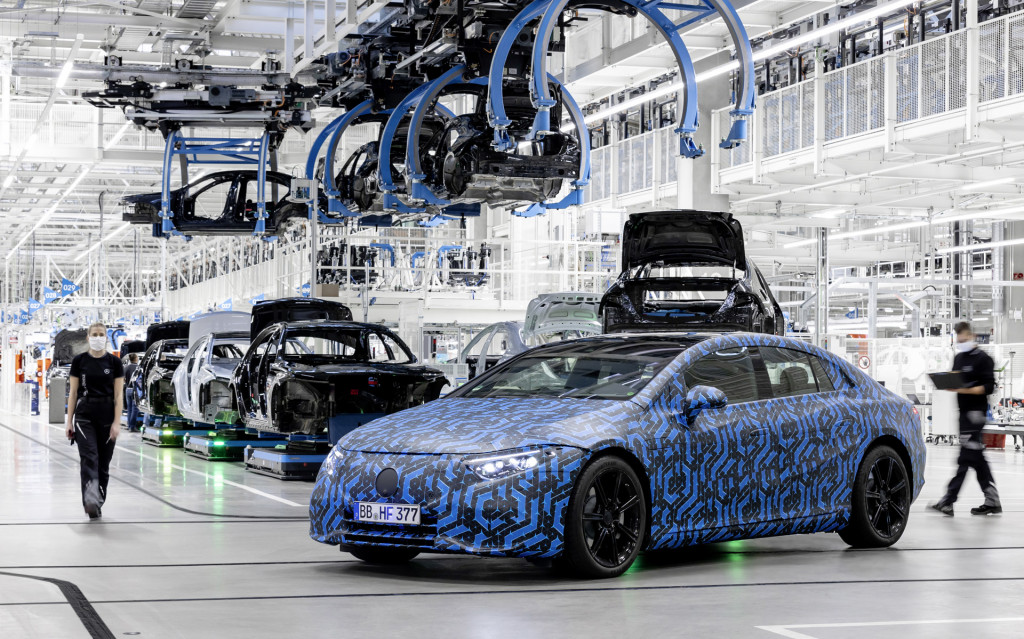Mercedes parent Daimler: No expiration date for gas and diesel sales
Mercedes-Benz parent Daimler is preparing for an all-electric future, but it doesn’t want to “prematurely” phase out gasoline and diesel engines, CEO Ola Källenius said in a recent interview with the Financial Times.
Daimler has pledged that all new models will designed “electric-first,” according to the paper, but the company doesn’t want to put an expiration date on internal-combustion models because they serve as a “cash-machine” to fund future EVs.
“Our combustion engine business is extremely robust and produces cash flows that we invest in the future,” Källenius said. Earlier this week, Ford announced plans to make its European passenger-car lineup all-electric by 2030, but Källenius indicated Daimler will take a more conservative approach.
“I think it’s too early to definitively say what the market is going to look like in 2030,” citing unknowns around charging infrastructure and demand, according to the Financial Times, “but it’s our job to put ourselves in a position to address that market.”
The timing of a full transition to electric cars depends not only on automakers and customers, but on regulations, charging infrastructure and the proliferation of clean-energy sources, Källenius added.

2022 Mercedes-Benz EQS prototype
Daimler is ramping up to build more electric cars, but it recently changed its strategy for the United States, opting not to bring its first volume EV here. The Mercedes-Benz EQC crossover was broadly conceived with the U.S. in mind, but it recently confirmed to Green Car Reports, among other outlets, that plans to sell it here have been suspended.
Instead, the first new Mercedes EV for the U.S. will likely be the high-end EQS crossover, which will start production in Alabama next year. China’s CATL is expected to supply cells for the crossover and an accompanying EQS sedan, which is scheduled to start production in Germany later this year.
Källenius’ predecessor, Dieter Zetsche, said that nobody was making an EEV that was economically viable in its own right. That was before the release of the Tesla Model 3, however.
Speaking of Tesla, Daimler once owned about 9% of the Silicon Valley firm, but sold its shares in 2014. Tesla supplied powertrain components for the last Mercedes electric car sold in the U.S.—the B250e (nee B-Class Electric Drive).
Mercedes-Benz has been testing electric cars, and solar-supplemented charging, since before Tesla existed, building a handful of electric 190E sedan prototypes in 1990, and testing them on an island in the Baltic Sea, off the coast of Germany. It just hasn’t tried to commercialize those ideas on a large scale until now.

